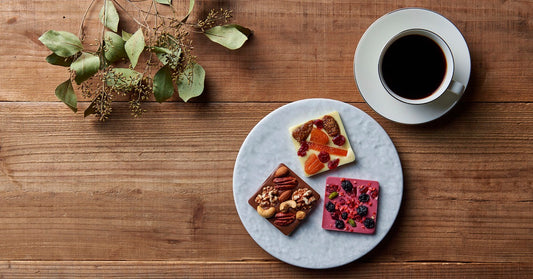Connecting ethical coffee culture to the future
Protecting the global environment and the livelihoods of coffee producers is the foundation of coffee production. A new blend has been added to the "Ogawa Coffee Shop Organic Coffee Series," which embodies "what can be achieved from a cup of coffee."
The "Ogawa Coffee Series" was launched in 1999 as a home product based on the concept of "specialty coffee created by Kyoto coffee artisans." In 2002, the series' pioneering "Ogawa Coffee Organic Blend" was released, followed by the launch of the "Ogawa Coffee Organic Coffee Series." We were one of the first to focus on selling certified coffee, and our organic regular coffee market share has now grown to approximately 80%* of the market.
"Ogawa Coffee Shop Organic Coffee Guatemala Blend" is a blend of coffee beans from Guatemala, Honduras, and Ethiopia that are certified organic by the JAS Organic Standards, international fair trade certification, and bird friendly certification. It has a fragrant bitterness and a rich flavor, making it the most full-bodied flavor in the Ogawa Coffee Shop organic coffee series.
*Sales amount of organic regular coffee in supermarkets across the country.
Source: Intage SRI+
Period: March 2023 to February 2024 Target: Supermarkets (nationwide)
Organic Coffee Guatemala Blend
[Taste comment]
Bitterness: ◆◆◆◆
Acidity: ◆◆◆
Body: ◆◆◆◆
・Organic coffee Guatemala blend 160g (ground)

JAS certified organic coffee
Organic coffee is grown without relying on chemically synthesized pesticides, fertilizers, or genetic modification, making the most of the power of nature. It is a farming method that reduces the burden on the soil and the environment, and is also kind to producers who work on farms. Registered certification organizations inspect farms and manufacturing plants every year to ensure that they are produced properly and in accordance with the rules. Only foods that meet these strict standards are allowed to display the "Organic JAS Mark." Ogawa Coffee obtained organic JAS certification for its Kyoto factory in 2001. In order to deliver delicious coffee to everyone, we are also working to create a sustainable coffee cultivation environment through the sale of organic coffee.
Fairtrade Certified Coffee
Fair trade is a trading system in which agricultural products and other products from developing countries are imported and consumed at a fair price that takes into consideration the livelihood of farmers, rather than simply purchasing them at market price. Ogawa Coffee obtained a manufacturing license for international fair trade certified products in 2003, and began selling international fair trade certified coffee in 2004.
Content of all ingredients: 100%
For more information about the nonprofit organization Fair Trade Label Japan, please see here: https://www.oc-shop.co.jp/fairtrade
Fair Trade Label
The Fairtrade label is a mark given by the international organization FLO (Fairtrade Labelling Organizations International) to guarantee that a product is a fair trade product.
FLO has established certification standards and registers and audits producers who qualify for fair trade.
Bird Friendly® Certified
The Smithsonian Migratory Bird Center at the Smithsonian National Zoo in the United States certifies shade-grown, organically grown coffee as "Bird-Friendly® Coffee" and promotes coffee cultivation that takes into consideration the environment and the protection of flora and fauna. To receive certification, coffee must meet certain criteria, such as being shade-grown, organically grown, and 40% of the coffee must be covered by trees. Traditional coffee cultivation, which cultivates rich forests, can protect the environment and tropical forests.
Shade-grown cultivation
Shade-grown cultivation is the cultivation of coffee under the shade created by shade trees. It is a traditional cultivation method that also aims to protect the natural environment, such as forest cultivation and the conservation of migratory birds. In coffee-producing regions around the world, there is a tradition of cultivating coffee under the shade of tropical forests, avoiding direct sunlight.















